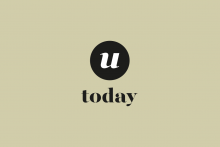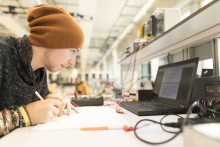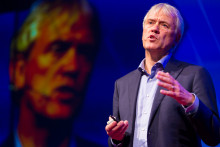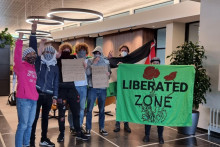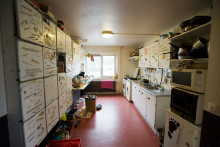From mid-October the first knowledge centre of the University of Twente is operational at the educational programme Communication Studies (TCW). Project leader Iris van de Kamp explains what a knowledge centre is: 'It is a virtual environment where scientific source material can be found in the form of online articles, references to books, magazines, links to University Library (UB) services and interesting links to organisations and external search systems.'
Every major within TCW has its own unit within the knowledge centre, which makes the centre more focused and not too cluttered. 'Within minutes you have the most important information on the research aspect within your major at your disposal. In addition it gives students easy access to scientific key-publications, which encourages them to work with these.'
According to Van de Kamp it can be relatively hard to quickly find your way in the UB. 'But that, of course, is because of the very broad function of the UB. The TCW-knowledge centre contains a selection relevant to the majors, where the UB contains the complete arsenal of scientific publications.'
The knowledge centre has a recognisable TeleTOP-exterior, but behind the scenes it is actually very different. The designers of the programme, Allard Strijker and Arthur Kamst from Educational Science and Technology (TO), developed the system on the basis of Lotus Notes, the programme on which TeleTOP is also based. 'Recognisable to everyone and teachers can add something easily, like in TeleTOP,' Van de Kamp says.
New is an experiment where students from two majors also get the right to add items, only under the headings 'events' (dates of conferences, lectures etc.) and 'sources' (all important scientific sources). The latter topic forms, according to Van de Kamp, 'the heart of the knowledge centre'. It is wait and see how enthusiastic students are about this right and how valuable their contributions are.
The system in the meantime runs on a CIV-server, which means that the inlog names of TeleTOP will be sufficient to get in. For the moment the knowledge centre, however, is only accessible for students, lecturers and alumni of TCW. 'We did have an internal discussion on opening the system like the Massachusett Institute of Technology has done,' Van de Kamp says. 'The issue is that MIT has the right image to do this, but opening the system could kill our image if the system does not have sufficient quality. For us it is obviously an experimental project.'
The knowledge centre can from now on be used at other educational programmes. The first programme to start working with it is the UT-teacher training course (Institute ELAN).
For more information on the knowledge centre see: www.wmw.utwente.nl/tcw/intern/knowledgecentre.htm (in Dutch).


